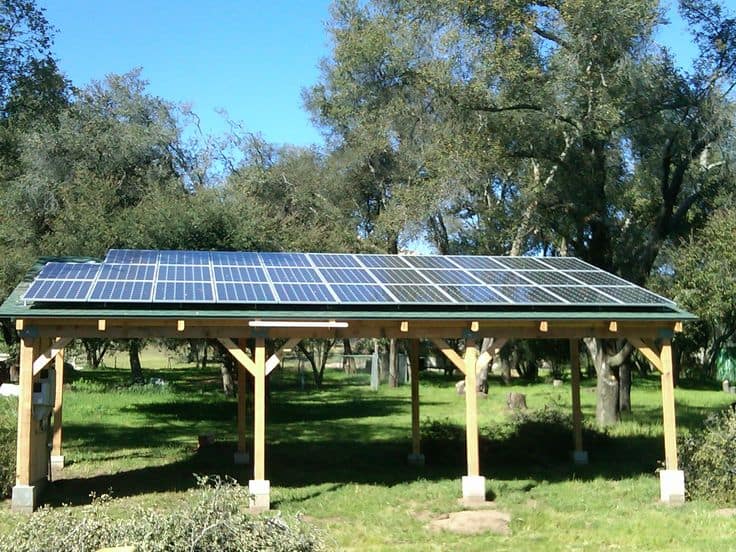Best Generator for a Home: A Comprehensive Review and Guide

In the age of increasing technology reliance, having a dependable source of energy is no longer an extravagance, but rather essential. Home generators can be seen as lifesavers here, they are capable devices that quickly spring into action when the main power supply goes off to make sure your vital electronics and machines continue running well. From freezing food during outages to powering home offices, choosing suitable best generator for a home could save you big time!
To select from such a broad range of markets today may seem difficult. That’s where our review guide comes in handy. We have carefully selected some top-notch models available this year based on their distinguishing features which will help you arrive at an informed decision regarding your purchase. Join us now on our informative journey highlighting strengths/weaknesses concerning each device’s durability plus much more.
Quick Overview of Top Home Generators
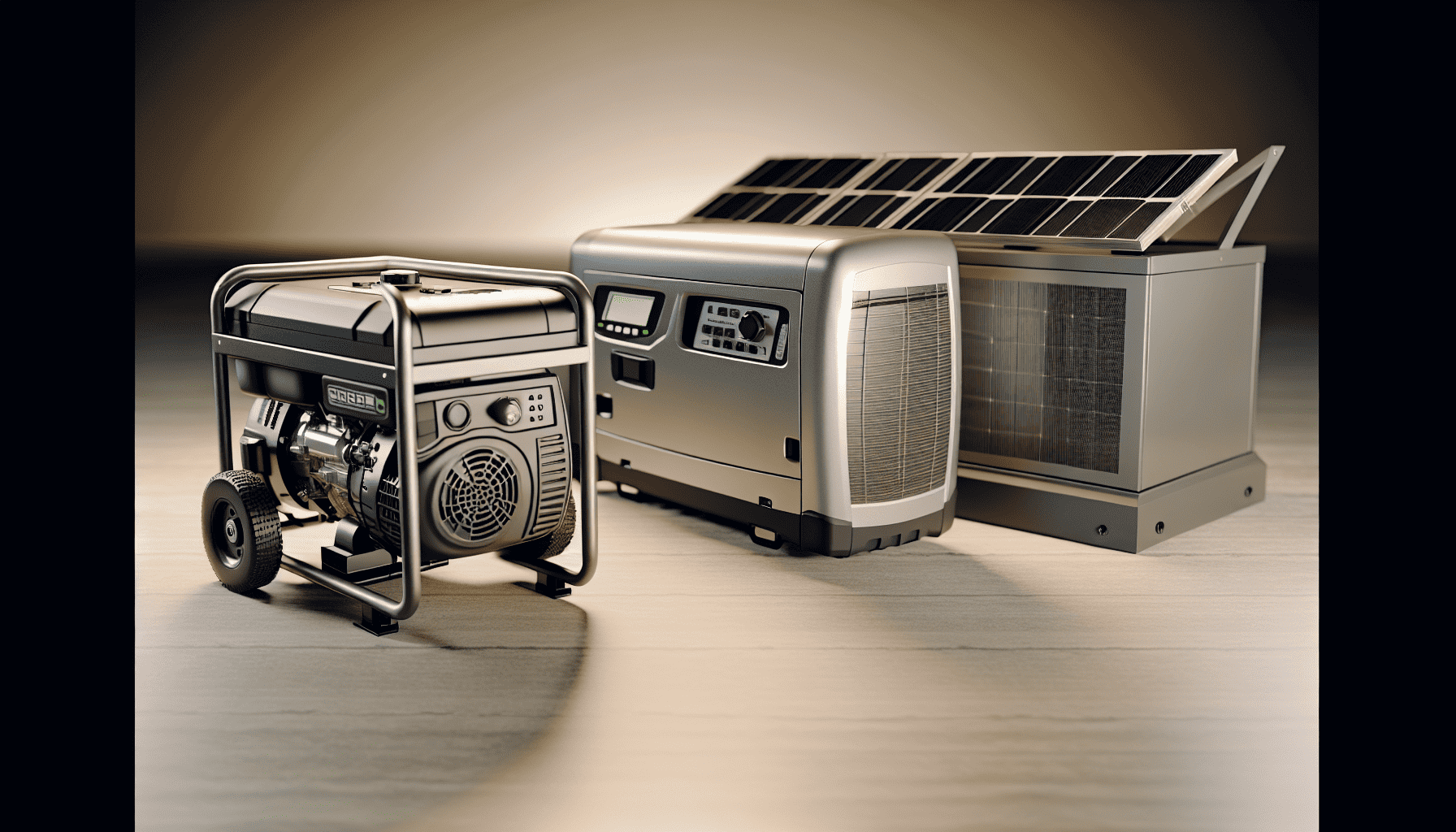
A quick overview of the top players in the generator arena, each with its own distinct features and capabilities that cater to an array of power needs, here it is. Every one provides superior performance for their respective category so you can have a reliable source when needed.
Best Overall: Honda EU2200i Inverter Generator. Known for its reliability and performance, this generator offers clean power output and fuel efficiency, making it a favourite among users.
Best for Off-Grid Living: Jackery Portable Power Station. This solar-powered generator is perfect for those living off the grid or those who prefer an eco-friendly power source.
Best Mid-Range Option: Westinghouse Portable Generator. Balancing performance and affordability, this generator is a practical choice for those seeking reliable power without breaking the bank.
Best for Versatility: Briggs & Stratton Generator. Equipped with a CO Guard feature, this generator is versatile and can be used for a variety of applications.
Best Dual Fuel Option: Champion Generator. This generator allows users to switch between gasoline and propane, offering efficient and reliable power in emergencies.
Best Portable Option: PREDATOR 3500 Watt SUPER QUIET Inverter Generator. Known for its super quiet operation, this generator is easy to transport, making it an excellent choice for various uses.
Best Solar Backup: BLUETTI AC300. This powerful solar generator offers eco-friendly power generation and storage for off-grid living and emergencies.
We will soon investigate the individual particulars, pros and cons of each generator’s distinct offering.
Honda EU2200i Inverter Generator – Best Overall
Price: $999. Price: $999.
Specifications:
Maximum Output: 2200 watts
Fuel Type: Gasoline
Run Time: Up to 8.1 hours on a full tank
Noise Level: 48 to 57 dBA
Weight: 46.5 pounds
Pros:
Compact and portable design
Reliable power output
Quiet operation
Cons:
Relatively expensive
The Honda EU2200i Inverter Generator provides a formidable power source in its compact form. It is known for being reliable, easy to maintain and delivering top performance. It has 200 watts more than previous models making the generator great for RV batteries and household appliances as well as machinery.
When compared with traditional portable generators, this inverter option runs exceptionally quiet at only 48-57 dBA – perfect for camping or residential zones that require minimal noise levels. This house generator also offers three years of warranty coverage whether used commercially or personally, an assurance of dependability beyond expectations!
Rating (out of 5):
Price: 3.5
Design: 4.5
Performance: 4.5
Noise Level: 4.5
Jackery Portable Power Station – Best for Off-Grid Living
Price: $2,399.
Specifications:
Capacity: 2 kWh
Charging Time: 2 hours
Weight: 61.5 pounds
Number of AC Outlets: 3
Number of USB-A Ports: 2
Number of USB-C Ports: 2
Car Port: 12 V, 10 A
DC Extension Port: Yes
DC Inputs for Solar Panels: 2
AC Input: Yes
Pros:
2-kWh capacity
Portable
Expandable modular design
Relatively quiet
Loads of connection options
Cons:
Heavy
Expensive
Port covers are tight
Proprietary connectors
Solar charging only recommended with Jackery panels
The Jackery Portable Power Station is a revolutionary product in portable power, offering an all-encompassing solution for off-grid living. This versatile power station provides reliable and efficient charging options to ensure you never run out of energy while camping, working outdoors or simply using it at home, the perfect device for any occasion! Offering multiple connectivity methods so that your everyday needs are met without fail. This powerful little package makes sure you’ll always have access to necessary electricity supplies no matter where life takes you.
travelling
camping
hiking
RVing
living off-grid
The Jackery Portable Power Station is a pricey yet powerful device with its 2 kWh capacity and wide range of connections, making it ideal for outdoor adventures or when the lights go out. It has some downsides like extra weight and proprietary connectors which can be off-putting to certain customers, but overall this power station will serve well in times of need.
Rating (out of 5):
Price: 3.0
Design: 4.0
Performance: 4.5
Portability: 3.5
Westinghouse Portable Generator WGen 7500 – Best Mid-Range Option
Price: To be determined.
Specifications:
Running Wattage: TBD
Fuel Type: Gas and propane
Noise Level: 72 dBA
Pros:
Dual fuel capability
Multiple power output options
Moderate noise level
Cons:
TBD
The Westinghouse Portable Generator offers:
Reliable mid-range option for home standby generators as a backup power source
Ability to run on both gas and propane, providing flexibility in fuel choice
Noise level slightly louder than an average vacuum cleaner, making it a decently quiet option for residential use.
The Westinghouse Portable Generator offers plenty of power options, with two traditional household outlets as well as RV-ready receptacles plus a transfer switch. This portable generator stands out from the crowd due to its dual fuel capability and diverse energy output potential – making it an excellent choice for anyone looking for mid-range performance at a reasonable price.
Rating (out of 5):
Price: TBD
Design: 4.0
Performance: 4.0
Noise Level: 3.5
Champion Generator – Best Dual Fuel Option
Price: To be determined.
Specifications:
Running Wattage: TBD
Fuel Type: Gas and propane
Noise Level: TBD
Pros:
Dual fuel capability
Versatile power output options
Cons:
TBD
The Champion Generator stands out for its:
Dual fuel capabilities, allowing users to switch between gasoline and propane
Flexibility and reliability during emergencies
Wide range of power output options, accommodating a variety of uses and equipment.
This Champion Generator is an excellent choice for anyone wanting the flexibility of a dual-fuel option. With its power versatility and fuel options, it makes this generator attractive in today’s market despite limited details on operational duration or price available at this moment. The noise level has not been disclosed yet, but there are still many advantages to consider when selecting one of these generators.
Rating (out of 5):
Price: TBD
Design: 4.0
Performance: 4.0
Noise Level: TBD
PREDATOR 3500 Watt SUPER QUIET Inverter Generator – Best Portable Option
Price: $800.
Specifications:
Running Wattage: 3500 watts
Fuel Type: Gasoline
Noise Level: TBD
Pros:
High power output
Super quiet operation
Portable
Cons:
TBD
The PREDATOR 3500 Watt SUPER QUIET Inverter Generator:
Is a compact beast
Is known for its super quiet operation
Is easy to transport
Offers a high power output
Is a reliable power source for a range of appliances and devices
This generator is a powerful and reliable mobile alternative, showcasing 3500 watts of energy as well as super-silent operation. It’s easy to see why this model remains so popular for those who are often on the go!
Rating (out of 5):
Price: 4.0
Design: 4.5
Performance: 4.5
Noise Level: TBD
BLUETTI AC300 – Best Solar Backup
Price: To be determined.
Specifications:
Capacity: Up to 12,288Wh
Charging Time: 8-9 hours
Dimensions: 20.5”L x 12.5”W x 14.1”H
Pros:
Expandable capacity
Rapid charging
24/7 UPS home backup
Cons:
Relies on battery power to run internal electronics
Lack of information regarding continuous 24/7 use
The BLUETTI AC300 is a highly efficient solar generator that offers formidable capabilities and features. It has the potential to be an ideal source of renewable energy, making it suitable for any kind of use.
A capacity of up to 12,288Wh
A 3,000W AC Pure Sine Wave Inverter with a 6,000W Surge
An expandable 3,072Wh Capacity that can reach up to 12,288Wh
A reliable LiFePO4 Battery with over 3,500 life cycles
The BLUETTI AC300 is an excellent standby generator for those in need of reliable solar backup due to its powerful features and efficient generator power. Although it utilizes battery energy to operate, this may not be suitable for all users. Some details about continuous 24/7 use are lacking at present.
Despite these issues, the BLUETTI AC300 still stands as a great selection amongst individuals who require robust solar support from their backup system. From its impressive technical specs right down to high-caliber performance – this is one purchase you won’t regret making!
Rating (out of 5):
Price: TBD
Design: 4.0
Performance: 4.5
Charging Time: 3.5
Essential Factors to Consider When Buying a Home Generator
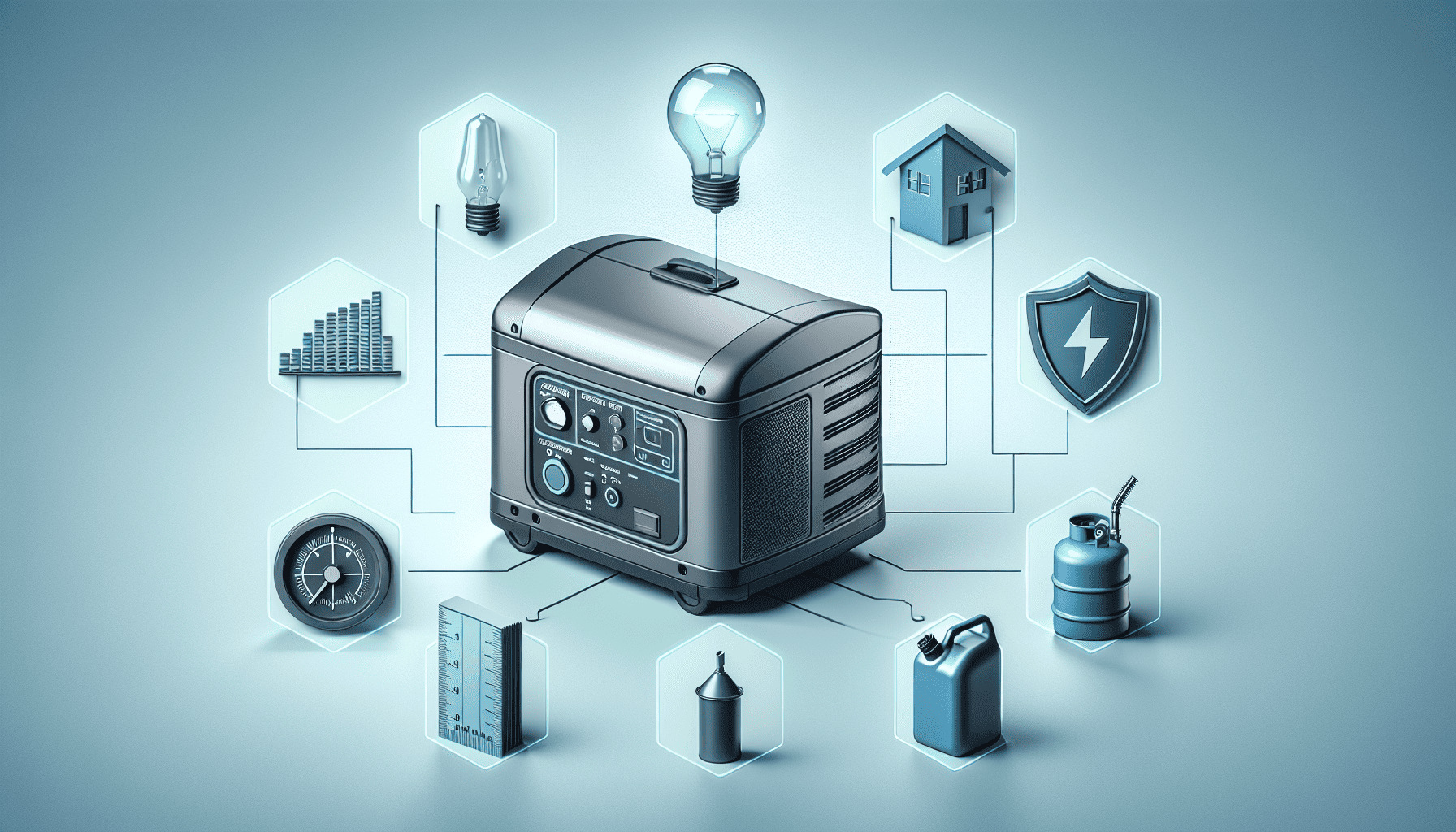
In order to find the right generator for your needs, a few key elements should be taken into account. First and foremost is considering how much power you require from the home generator. Usually it’s suggested that an average house would need at least 5,000 – 7,500 watts to run essential items such as refrigerators or air conditioners.
The type of fuel used also has a great influence on both noise level and energy efficiency of the device. While gasoline provides greater wattage, it makes more sound than propane-powered generators which offer slightly lesser performance yet quieter operating experience. Whereas natural gas consumption may not be as high, but its lower cost can make up for this factor in some cases.
It’s important to keep size in mind when choosing one too — opting out for bigger models might seem sensible initially. They won’t guarantee best results if their power generation capacity doesn’t match household requirements accurately enough so bear that point in mind before making any decision regarding purchase price etc. Think about warranties offered by different vendors plus try determining approximate temperatures within which said unit must function properly without compromising quality over time duration effectively covered therein!
How Would You Connect a Generator To Your House?
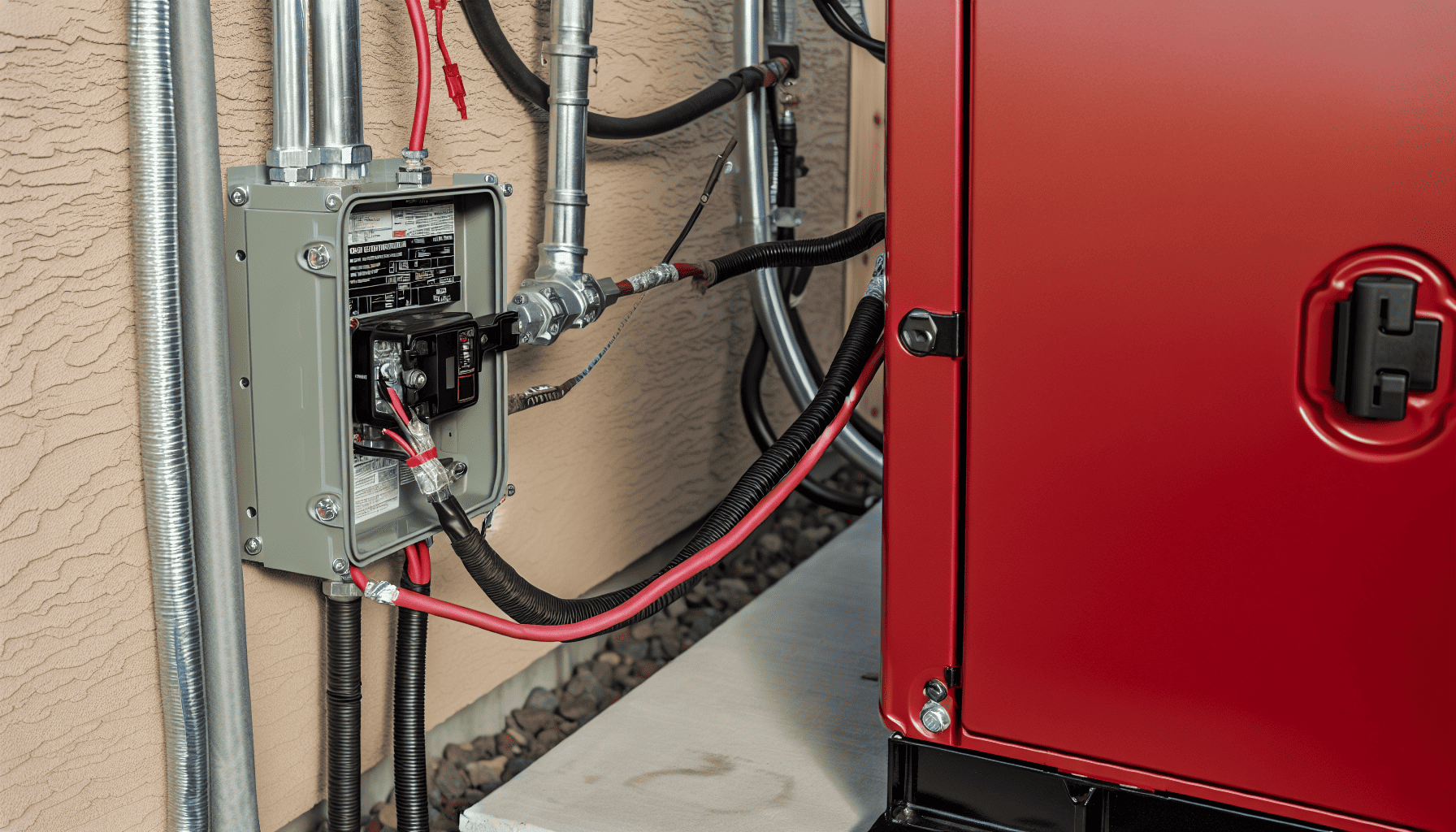
For a reliable power supply during a blackout, installing a home generator and transfer switch is essential. To guarantee the connection between your house’s electrical load and the generator safely and properly, a transfer switch can be used. Types of such switches include manual ones for having to manually connect/disconnect from the generator, automatic which will automatically shift power source when electricity is lost, open transition type that enables you for switching with no interruption in service as well as closed one doing this but more slowly than former delayed version performing shifts gradually at measured intervals instead quickly all together.
Installing these items requires expertise knowledge about complex wiring issues thus should be left to professionals rather than attempting it without enough knowledge since safety risks are real danger if things go wrong unknowingly by newcomers who lack experience on installation processes like this delicate operation involving generators and their corresponding transferswitch components involved here extensively.
How Many Watts Do You Need From A Generator?
When it comes to making sure your generator is able to power up all of the necessary appliances, you should first understand its wattage. The starting watts indicate what level of output is required for a device or equipment while running wattage entails an adequate amount that must be constantly supplied in order for them to function effectively during a blackout.
An average household’s supply needs can usually be covered by one home generator with around 5,000 – 7,500 wats of electricity being enough to maintain essential systems and gadgets in operation through these times when there isn’t any other source available from the grid outside.
It varies depending on specific devices. 0.75 kWh per hour (toaster oven), 1200-1500 watts (dishwasher), 966-1723 W (microwave) , 2150W(ovens) and 150 – 400 Watts just as refrigerators often require lower than many expect even though they are major components which use more energy once powered on again after long periods without usage due their general high capacity storage modes/settings..
What Connection Options Should Your Generator Have?
When selecting a home generator, it is important to consider the various connection possibilities available such as AC outlets, USB ports and DC inputs for solar panels. This can significantly increase its functionality in different scenarios while still providing comfort during power outages. The included AC outlets make it possible to use regular household appliances with ease when needed whereas using USB ports will supply devices like smartphones, cameras and tablets that rely on this kind of source their energy requirements quickly. Connecting solar panels through DC inputs is an excellent choice if you want an eco-friendly charging option or are looking into off-grid setups since they can charge batteries directly from them or be used for DC appliances too. All these diverse options provide more flexibility by allowing homeowners access to all types of loads via either electrical circuits linked up with transfer switch elements or personal ones utilizing just a simple usb port outlet connector piece making sure everybody’s needs are taken care no matter the situation presented at hand.
How Much Gas Does a Generator Use?
When picking out a generator, fuel usage is an important factor to bear in mind. Several elements can affect the amount of gas consumed by generators: size, load capacity, engine efficiency and gasoline quality are all significant factors at play. Typically, larger-sized generators call for bigger engines that would then need more fuel when running on full throttle. Similarly, with higher loads comes increased consumption too. On average, a 22 kW machine utilizes around 3.6 gallons/hour under such heavy conditions.
To work out how much petrol your generator requires per hour, you simply calculate the rate in terms of either liters or gallons taken divided by its runtime hours spent working actively, this yields you current ratio measurement unit used respectively.(Litres/Hr & Gallons / Hr)
Where Should You Store a Generator When Not In Use?
It is important to store a generator in the right way when it’s not being used. A cool, dry place that has good ventilation should be chosen for storage and cleaning the unit before putting it away is essential. This will help prevent issues such as overheating which could damage your generator, or even ignition problems due to bad weather conditions causing a decrease in its performance level. To ensure complete safety against carbon monoxide poisoning from lack of oxygen during fuel combustion, no generators must ever be stored indoors without proper air circulation provided outside at all times. Generator Tent Running Cover, Weatherproof Cover, Universal Weatherproof Generator Cover and Storm Shield cover are four examples designed specifically with protection against external elements like rain & wind – Gas should still be kept away from homes/electricals in well ventilated areas after storing safely too!
What Maintenance Should You Perform On Your Generator and When?
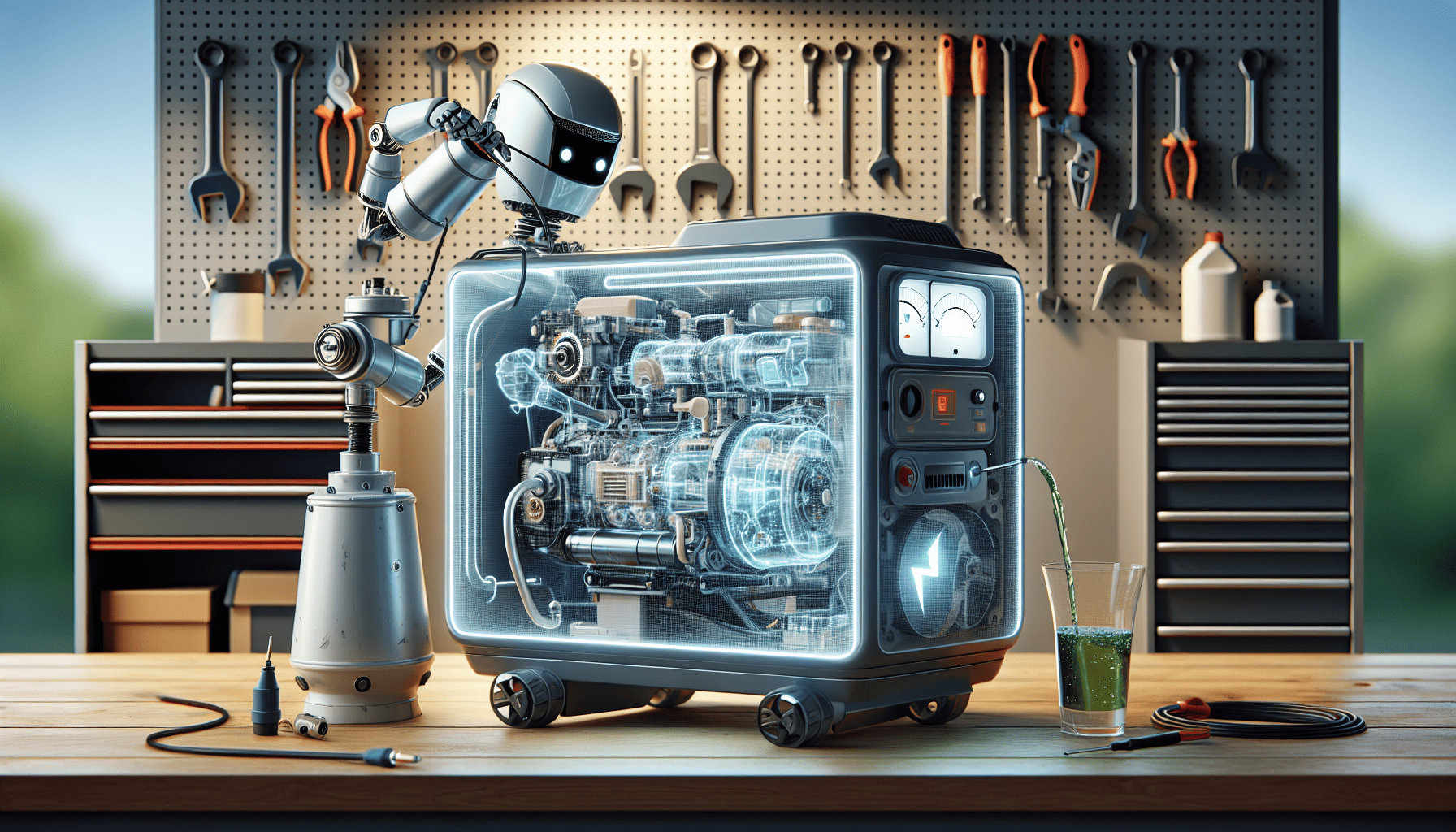
To ensure your generator functions well and has a longer life span, regular maintenance is necessary. It includes having an oil change every six months or after 100 hours of use. To specialist servicing tasks completed by professionals. The generator should have its engine oil replaced approximately 200 hours since the last switch up and each requires checks for proper charging every three months at least. All this constitutes keeping generators running efficiently, prolonging their lifespan considerably.
What Are Other Uses for a Generator?
Generators are not only used to provide electricity in case of power outages, they can also be utilized for recreational activities such as travel and camping. Portable generators offer comfort by providing electrical energy when one is away from home, while standby generators prove invaluable on construction sites with unreliable grid power or no access at all. These versatile machines are indispensable on outdoor events where food stalls, lighting systems and sound equipment need a reliable source of electricity during the festivities. Lastly but certainly not least, portable generators and those acting as backup sources serve an important role running farm tools too just in case there ever come any unexpected emergency situations causing dark times due to their lack of regular mains supply!
What Can You Do In an Emergency If You Do Not Have a Generator?
In the event of a power outage without an emergency generator, there are several options to maintain your electronics active. Portable generators can provide temporary energy for essential items or equipment. Uninterruptible power supply (UPS) systems also offer reliable protection when blackouts happen. Solar chargers and battery backups give access to electricity in any location while portable power stations work as effective backups during outages and serve as useful sources for powering tools on-the-go. Battery backups store up charges which is then released once the blackout occurs, offering dependable support with necessary devices or appliances even under intense conditions where other forms of emergency backup have been rendered useless by exhaustion or damage caused due to sudden changes in voltage levels associated with short circuiting events like fire incidents etc., providing just enough juice needed until help arrives from various utility networks operating at grid level subsequently bringing regularity back online along newly available structural safety links having undergone their respective repairs accordingly after successful inspections post incident investigation conclusion respectively!
When is the Best Time to Buy a Generator?
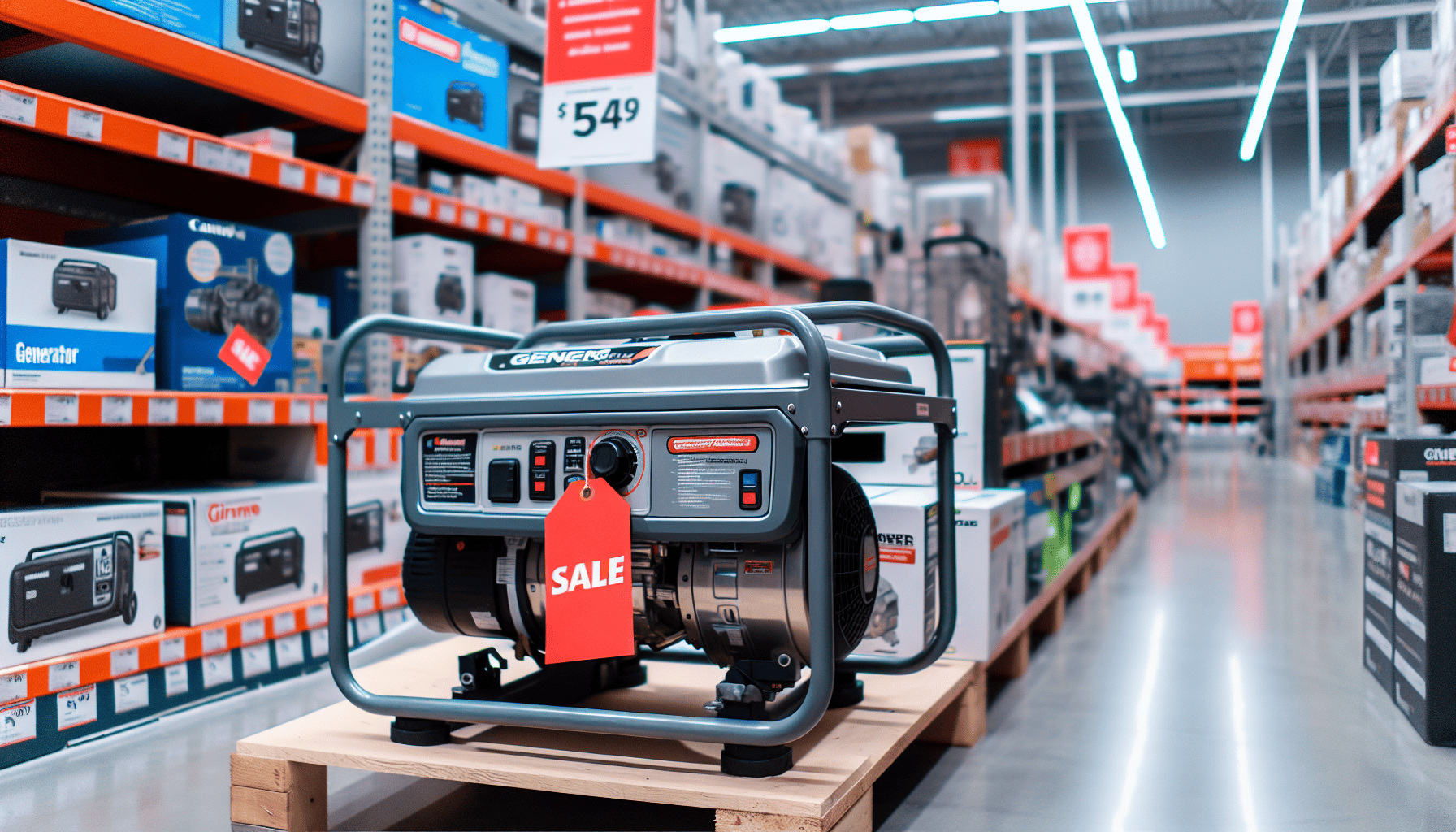
Timing is essential when purchasing a generator. Typically, the best time to buy one would be in late summer or early fall since there are typically more sales and discounts available then. Annual shopping holidays such as Black Friday and Cyber Monday also offer excellent savings on different types of generators such as gas, solar powered units, inverters or portable models. Planning your purchase around these events can help you get great value for money while still obtaining all that you need from the generator itself. All things considered, being mindful of seasonal trends along with yearly discount periods will certainly bring about greater savings overall!
Summary
Home generators are an essential investment for providing continued comfort and electricity supply during outages. The choice available is vast with possibilities ranging from the effective Honda EU2200i Inverter Generator to the eco-friendly BLUETTI AC300, catering to every need regardless of budget.
With regards to purchase consideration should be given not only in power requirements but size, noise level, fuel type used plus cost price as well as gas consumption rate alongside operating temperature range along with warranties -all serving up information necessary when selecting a generator that’s right for you. To guarantee optimal performance over time, it’s suggested regular maintenance take place coupled with proper storage understanding how much petrol your machine consumes where required.
Whether powering emergency backups, hosting outdoor events or on job sites and recreational vehicles, being mindful of both individual needs against offerings each model provides will ensure wise decisions made ensuring utmost satisfaction all round.
Frequently Asked Questions
What type of generator is best for home use?
For home use, natural gas and solar generators are the ideal option for their fuel efficiency and dependability. These may necessitate an entire-home generator system to get the most out of them.
How big of a generator do I need to run my house?
When it comes to powering essential appliances in a normal house, the best solution is having a generator with a wattage between 5 and 8 thousand.
What are the top 3 home generators?
For your home needs in 2023, the top 3 generators are Briggs & Stratton’s 40346 model, Westinghouse’s WGen7500DF and Generac 7043. These products provide dependable power during outages while boasting user-friendly features and lasting performance to make life easier.
How much is a generator for a 2000 sq ft house?
The price of a generator that can adequately power an entire 2000 sq ft house is between $10,000 – $20,000. Most people opt for an 18kW generator which retails around $15,000.
What are the different types of transfer switches available for generators?
Transfer switches for generators are available in different varieties, including manual, automatic open transition, closed transition and delayed-transition models. All of them retain the same tone and provide all necessary information while rearranging expressions or their order.




